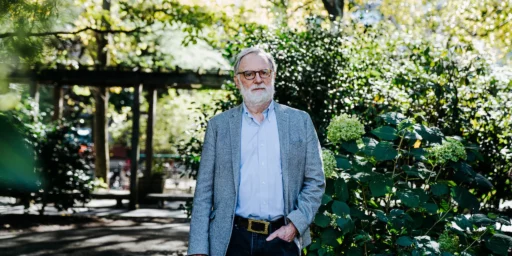Great Teachers Myth
 In the current Atlantic, Amanda Ripley offers this summary of an exhaustive report from Teach for America:
In the current Atlantic, Amanda Ripley offers this summary of an exhaustive report from Teach for America:
Superstar teachers had four other tendencies in common: they avidly recruited students and their families into the process; they maintained focus, ensuring that everything they did contributed to student learning; they planned exhaustively and purposefully—for the next day or the year ahead—by working backward from the desired outcome; and they worked relentlessly, refusing to surrender to the combined menaces of poverty, bureaucracy, and budgetary shortfalls.
While the focus on the report is on teaching other teachers how to replicate the success of the superstars, what this tells me (or, actually, reconfirms) is that superstar teaching is an unrealistic, unsustainable goal.
Recall the story of Erin Gruwell, the real life teacher upon whose experience the Hilary Swank character in Freedom Writers is based. She basically worked 20 hours a day, spent large amounts of her meager salary buying things for her students, and in the process destroyed her marriage. After one year, she insisted upon being elevated to the next grade so that she could teach the same students again. She did this until said kids graduated high school, followed them to college, and then quit teaching altogether.
Greatness of that sort can be maintained for a very short period, after which burnout is inevitable.
There are plenty of very good teachers, of course, who manage to make the curriculum interesting for the students and motivate them to learn. But not a lot of miracle workers who can take dozens of students from broken homes and an environment that does not value learning and turn them around year after year after year.
via Tyler Cowen






This should remind us the primary responsibility for a child’s education rests with the parents. Shifting that responsibility to society has created an unrealistic environment of expectations and requirements.
You’re right. You can never assume that a majority of employees in any field are superstars. In any event the current fad for testing obliterates any value a superstar teacher might bring.
We’re warehousing kids, hammering them with criminal levels of drudge work, piling requirements for extracurriculars and community work on them. It’s wrong, and it’s wrong on both ends of the political spectrum equally.
Right-wingers have their obsessions with testing and “basics,” and careerism, left-wingers have their devotion to teacher’s unions and ever higher levels of funding, and neither end has a clue what they’re doing.
And let’s not leave the parents out, because it’s parents insisting that if Johnny with the 95 IQ will just sacrifice his youth on the altar of testing and homework he’ll go to Harvard law some day. No, he’ll learn to hate his life and devalue the things he might end up doing when he doesn’t get into Harvard.
It is atrocious. It’s inhumane and indecent. Conservative yahoos and liberal unionists and greasily ambitious parents: all in all, just more bricks in the wall.
As with many facets of our society a layered approach is required. Of course, parents are of primary importance but I think it would be very imprudent to stop there. We continue to need a good public school system.
Such a system would be like the military in the sense that it would not rely solely on Napoleons as officers and Audie Murphies as enlisted but would systematically and routinely produce the needed results with the inputs at hand. We’re falling short of that.
I’m not sure what that formula is but I could probably tell you about 500 things that it isn’t.
So, for example, it isn’t driving your best teachers out of the system and it isn’t relying just on the best teachers. It also isn’t using the public school system as a jobs program or for consciousness raising.